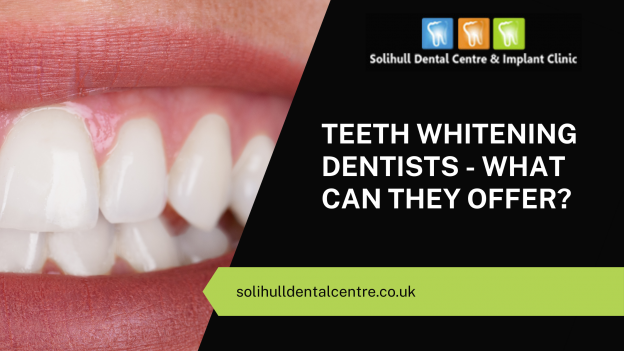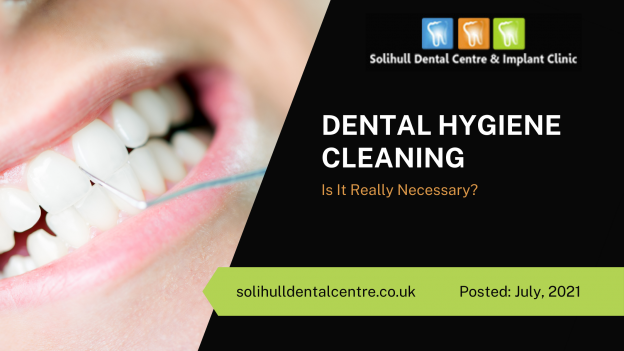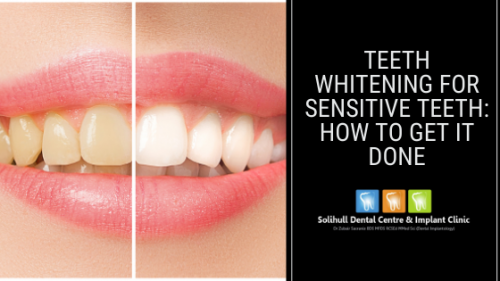Pearly white and sparkling teeth are an essential component of an attractive smile. According to a survey by the American Academy of Cosmetic Dentistry, people who have beautiful teeth and charming smiles are perceived to be more attractive and approachable than ones with flawed smiles. If you are also concerned about your coffee or tea tooth stains ruining your smile, don’t worry; you can get rid of these stains and enjoy a beautiful smile, thanks to professional teeth whitening.
“But why should I get my teeth whitened at a dentistal practice, and why can’t I use an at-home whitening formula?”, you might ask. This blog will answer your question. So, continue reading to learn why professional teeth whitening by a dentist is always safer and gives superior aesthetic results.
How Well Does Teeth Whitening Done By The Dentist Work?
If you search the internet, you will find numerous at-home bleaching products and non-dental cosmetic services claiming to provide amazing teeth whitening results. Unfortunately, most of these products contain substandard ingredients that fail to provide desirable results. Similarly, some non-dental cosmetic services offering teeth whitening often use low-strength bleaching agents while others use excessively high concentrations that can cause complications such as tooth sensitivity and decay. On the other hand, dentists are trained to perform teeth whitening safely and effectively. Although dentists use high-strength bleaching agents to ensure excellent results in a single sitting, they take all precautionary measures to prevent any damage to the teeth or gums. That is why, teeth whitening performed by a dentist always provides better results than non-dentists and at-home bleaching products.
How Often Can You Whiten Your Teeth With Zoom In One Year?
Although zoom whitening can effectively remove even the most stubborn tooth stains, it should not be considered as an alternative to regular oral hygiene maintenance. After all, most teeth stains develop because of failure to ensure optimal teeth cleaning. Dental experts recommend that zoom teeth whitening should not be performed more than once in a year. This is because excessive whitening procedures may put your teeth at-risk of developing sensitivity and dental cavities.
How Successful Have You Been At Whitening Your Teeth?
At-home whitening formulas and strips offer varying levels of aesthetic results. As mentioned earlier, many whitening product manufacturers either use substandard ingredients to cut cost, or use dangerously high levels of bleaching agents that can damage your teeth. Regardless, one thing is certain; the aesthetic outcome of at-home whitening systems can never be as good as professionally done teeth whitening by a dentist.
What Is The Requirement Of The Teeth Whitening?
The main ingredient of teeth whitening systems is a potent bleaching agent. Most whitening systems use carbamide peroxide as their whitening agent. This chemical is extremely volatile and it quickly releases hydrogen peroxide, which penetrates beneath the dental enamel and chemically dissolves teeth stains caused due to the consumption of several foods & drinks:
- Coffee
- Tea
- Tobacco
- Red wine
Some whitening formulas also use a light source to activate the bleaching agent to enhance its effectiveness.
Why Is Professional Teeth Whitening Important?
Professional teeth whitening is safer and more effective than other teeth bleaching options. This is because dentists always apply protective materials like vaseline or cocoa butter on the gums, cheeks, and lips to prevent accidental bleaching. Besides, dentists use very high concentrations of bleaching agents, which provide superior results in a single sitting than other non-professionally applied whitening products. Hence, you will feel a noticeable improvement in the shade and colour of your teeth after a single sitting of professional teeth whitening. This is why professional whitening should be preferred over other tooth bleaching options.
Are Home Teeth-Whitening Kits, Worth It?
At-home teeth whitening products have the advantage of being cheaper and more convenient. In addition, you can use these formulas in the comforts of your own home and according to your schedule. That is why people tend to prefer domestic whitening products to save time and money. Unfortunately, at-home whitening formulas do not provide the desired results as they are not as effective as the ones used at a dental practice – and require repeated application and treatment. In the end, many people ultimately need to visit their dentists for teeth whitening after they fail to achieve the desired results with domestically used whitening products.
How Useful Are The Teeth Whitening Kits And Products?
You may benefit from teeth whitening kits and products if you have minor teeth stains. However, if you have obvious teeth stains, whitening formulas available in the supermarkets or convenience stores may not be sufficient for you. You may have to use the formula repeatedly to achieve the desired results, which carry the risk of making your teeth sensitive and vulnerable to tooth decay. So, if you want the best aesthetic outcome, you should consider visiting a dentist for your teeth whitening.
Teeth whitening is one of the most commonly performed cosmetic dentistry procedures worldwide. Whether you have curry, tea, coffee, red wine, or juice stains on your teeth, you can get rid of them through professional whitening. If you are looking for the best cosmetic dentistry practice Sollihul, you should go to Sollihul Dental Centre and Implant Clinic. We offer dental services for your entire family in a comfortable and relaxing environment and at affordable rates. Whether you need veneers for your crooked teeth or braces for your kids, we are there to take care of all your needs. So, book a new patient appointment today and let us give you a lasting and healthy smile.






